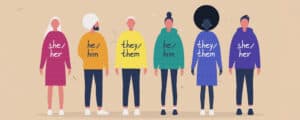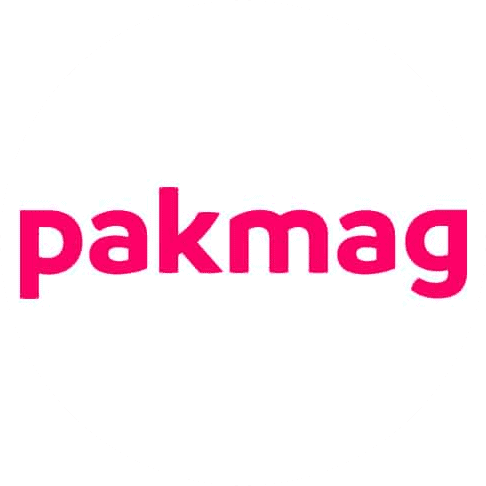We value diversity in most aspects of our lives, yet stigmas associated with gender and sexual orientation are still prevalent. Many social constructs have contributed to this, but it’s time we work to provide a safe and equal space for everyone.
Whether you know it or not, chances are you’re close to someone who identifies as belonging to the LGBTQIA+ community. And chances are, as a result, they experience unjust treatment and judgement with significant implications on their mental health and wellbeing.
Here’s a few startling statistics compiled by Statistics from LGBTIQ+ Health Australia (April 2021) that highlight just how catastrophic a lack of acceptance and support can be among teens and young adults.
• 11 percent of LGBTQA+ young people aged 16 to 17 had attempted suicide in the past 12 months compared to 3.8 percent of the general population.
• 25.6 percent of LGBTQA+ young people aged 16 to 17 had attempted suicide in their lifetime compared to 5.3 percent of the general population.
• 59.1 percent of LGBTQA+ young people aged 16 to 17 reported having experienced suicidal ideation in the past 12 months compared to 11.2 percent of the general population.
• 62.1 percent of LGBTQA+ young people aged 14 to 21 reported ever having self-harmed compared to 14.1 percent aged 15 – 19, and 21.25 percent aged 20 – 24 of the general population.
Even if you don’t identify as belonging to the community, you can still be loud and proud with your allyship. We’ve compiled just a few ways you can show your support, promote inclusivity, and be an active ally to the LGBTQIA+ community.
Be Informed
With information at your fingertips, there’s no excuse to not do your research. Let’s start with the basics, what does LGBTQIA+ stand for? Lesbian, Gay, Bisexual, Transgender, Questioning and/or Queer (non-cis or hetero), Intersex, and Asexual. The plus is inclusive of anyone who identifies so, some of those can be but is not limited to pansexual, demisexual, gender non-conforming, non-binary, genderqueer, gender fluid, and gender neutral. Sexual orientation and gender identity are spectrums that don’t have to be congruent with each other, therefore someone’s sex at birth may not align with their gender identity or sexual orientation. It may seem confusing at first, but a simple search will clear things up and make you aware of just how diverse we are, just how normal it is, and just how important identity is to all of us.
Know Your Pronouns
Using the correct pronouns is a great and simple way to show your support, as well as help affirm someone’s identity. Although it may seem confusing at first, we often use third person plural pronouns even when referring to a single person. For example, when we come across a name such as Jamie, we may refer to them as they/them until we’re sure with what they’re comfortable with. For someone not identifying as cis (a person whose gender identity matches their birth sex), you would merely continue with those pronouns. Although it may seem confusing or confronting at first, the more that people share their pronouns the more comfortable it will become for everyone. Just think how you would feel if someone kept misgendering you.

Be Honest
Be honest with what you don’t know or don’t understand. It’s ok to be curious and ask questions, as long you’re respectful. Do your own research first to ensure your questions are educated and appropriate, take responsibility for your own learning. Be honest with how it makes you feel, and get used to being uncomfortable. Understand that this is how many non-cis and hetero people feel when their existence is dismissed by an ignorant joke or remark.
Speak Up
This is a hard one and can be confronting for everyone involved. Speaking up in front of strangers is one thing, but to call out your peers can be daunting. Not everyone may be as informed as you, take this time to share what you know and why it’s important. Many people are more accepting to new information from people they know, so lead them in the right direction. It’s an uncomfortable journey, but it’s worth it. Just remember, you’re here to speak up, not speak on behalf.
Listen Up
If you ever end up in the situation where someone voluntarily comes out to you, don’t make it about you. This may seem obvious, but an extroverted attempt to be accepting can come across as overbearing. At such an important time, listen up, appreciate their trust in you, and applaud their bravery. You can then walk away proud of your allyship. Maintain this stance when you’re asking questions too, it’s not a debate, you’re there to learn.
“When you’re accustomed to privilege, equality feels like oppression. (It’s not.)” – Franklin Leonard
Support Equality
Supporting equality outside yourself is critical to change. Sign petitions, donate to causes, educate yourself and others around you, and don’t forget to vote! As a parent you have a responsibility to instil inclusive and respectful values in your children, so get them involved, have those discussions, they’re going to come across a rainbow of people in their lifetime. Everyone needs a safe space after all.
Come Out As An Ally
Show your allyship and be confident with it. There are many benefits to being an active ally. You open up to the opportunity of meeting so many more diverse and unique people, and are likely to have more genuine interactions. You’ll be less locked into traditional gender roles and stereotypes, and will get to be a more positive role model to your little ones. And most importantly, by showing your respect, acceptance, and support, chances are, you’ll make a profound difference in someone’s life.
Repeat
And finally, don’t go limiting your allyship, there are countless marginalised groups that need your support and advocacy, be it Black Lives Matter or Me Too, inequality should not be our future. So let’s all appreciate our diversity, promote inclusivity, and remove the stigma.
If you’re looking for more information or support, there are a number of resources and services available.
QLife (anonymous and free LGBTI peer support and referral) – 1800 184 527 – www.qlife.org.au
Lifeline – 13 11 14 – 24/7 www.lifeline.org.au
Headspace headspace.org.au
Relationships Australia Queensland www.raq.org.au
Advocacy Group www.pflagbrisbane.org.au
Peer Support and Advocacy www.lgbtiqhealth.org.au
Charity and Advocacy www.theequalityproject.org.au
Digital Mental Health Resources www.headtohealth.gov.au
Mental Health Resources www.au.reachout.com
Queensland Aids Council quac.org.au
Northern Aboriginal and Torres Strait Islander Health Alliance www.natsiha.org
Community Support Page Mackay Rainbow Network





